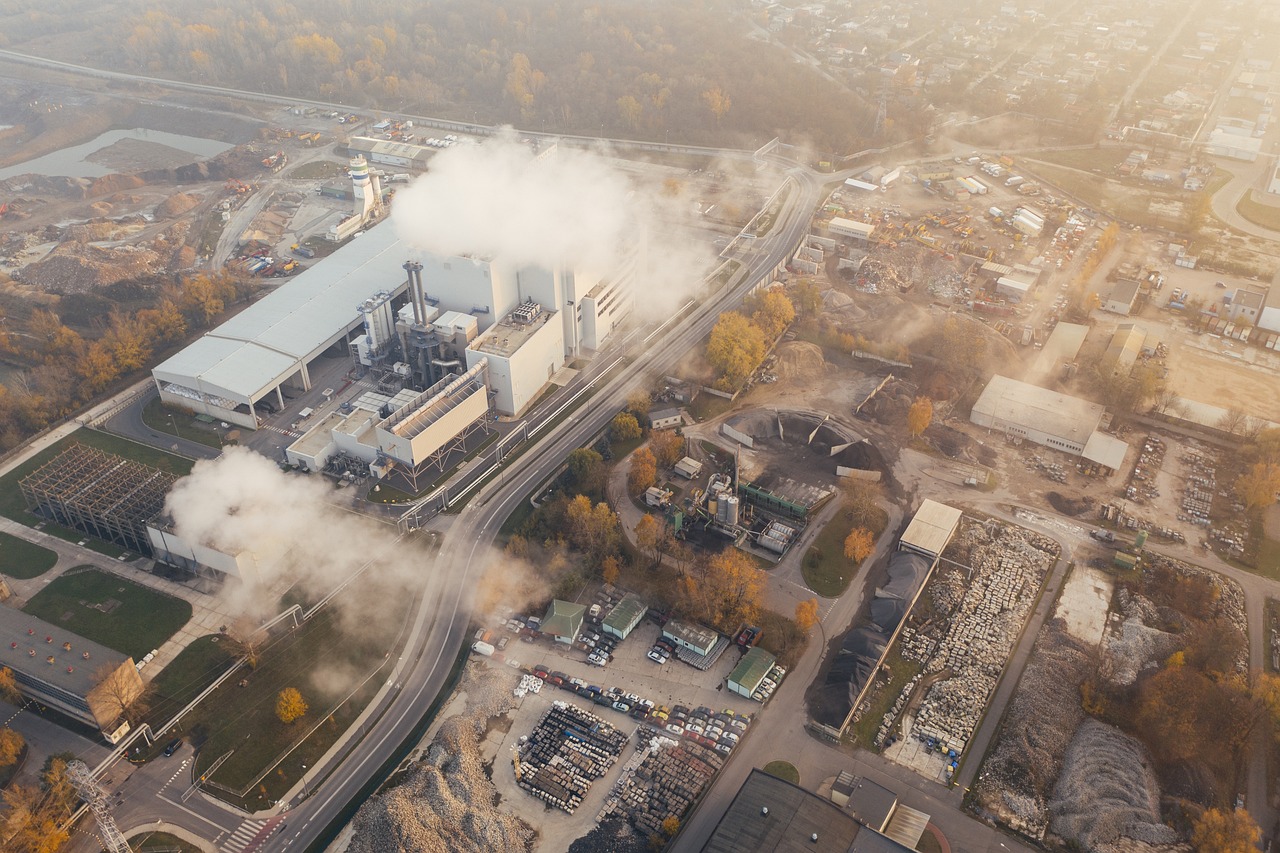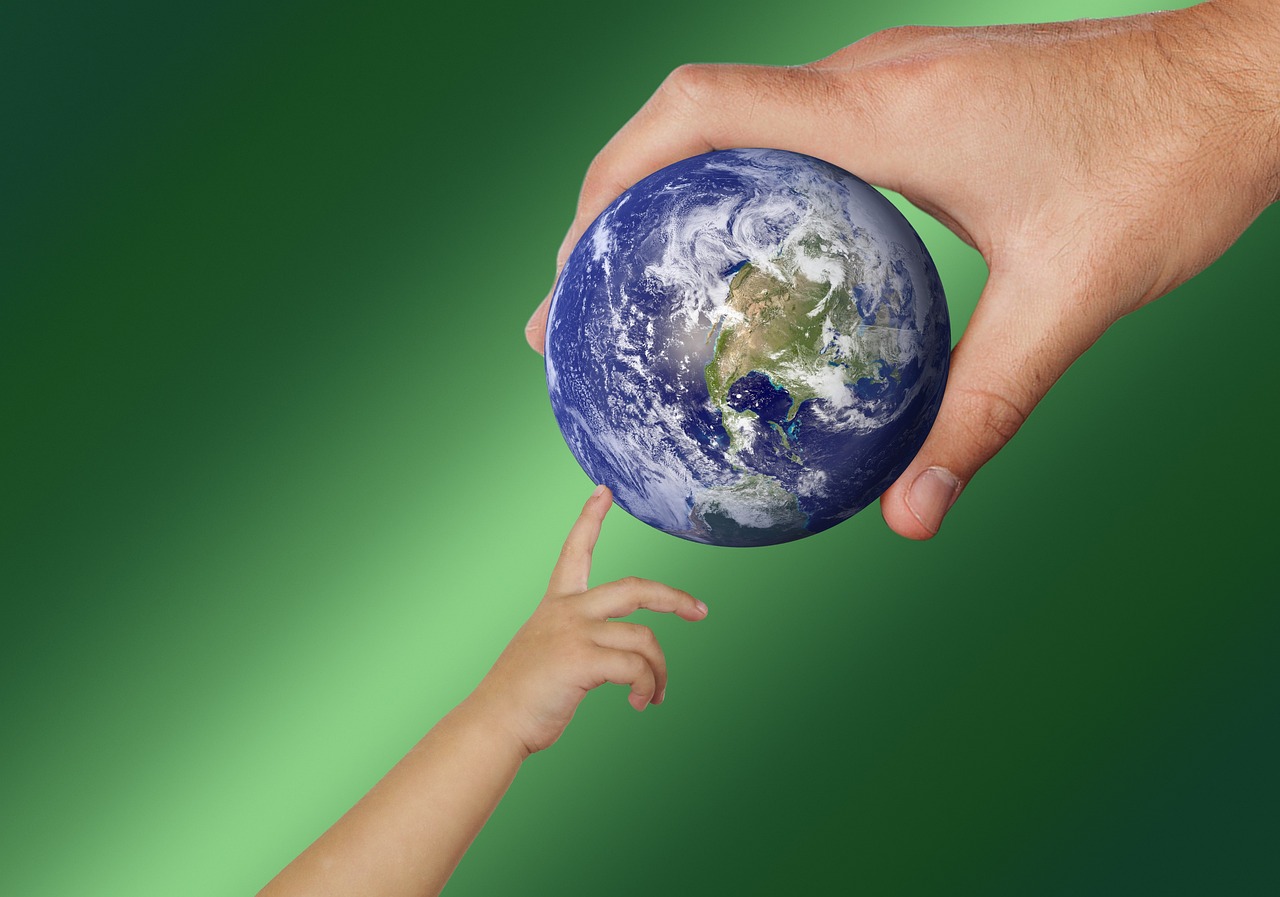Globalization and its Philosophic Critique
Globalization is a term that is often thrown around in discussions about modern society, but what does it really mean? At its core, globalization refers to the process of increasing interconnectedness among countries, cultures, and economies. This phenomenon has transformed the way we communicate, trade, and even think about our identities. However, while globalization has brought about many positive changes, it has also sparked a myriad of philosophical critiques that challenge its implications on our world.
To fully grasp the implications of globalization, we must delve into its historical context. The roots of globalization can be traced back centuries, but it has accelerated dramatically in the last few decades due to advancements in technology, transportation, and communication. This rapid expansion raises critical questions: Are we losing our local identities? Is economic growth worth the potential exploitation of labor? And how do we balance global interdependence with national sovereignty?
As we navigate through this complex landscape, it becomes clear that globalization is not merely an economic phenomenon; it encompasses cultural, political, and ethical dimensions that warrant thorough examination. The philosophical critiques of globalization are diverse, reflecting various schools of thought. For instance, liberalism often views globalization as a pathway to greater freedom and prosperity, while Marxist perspectives argue that it exacerbates class struggles and inequality.
Moreover, the postcolonial critique sheds light on how globalization can perpetuate cultural imperialism, leading to the homogenization of diverse cultures. This raises an important question: Are we trading our unique identities for a globalized, yet uniform, culture? The implications of these critiques are profound, affecting not only our understanding of globalization but also our approach to ethical considerations in a globalized world.
In this article, we will explore these philosophical critiques in depth, examining the ethical implications of globalization, its impact on human rights, and the environmental challenges it presents. By doing so, we aim to provide a comprehensive understanding of globalization, fostering a dialogue that encourages critical thinking and reflection on our roles as global citizens.
Understanding globalization involves exploring its definition, historical context, and the various dimensions—economic, cultural, and political—that shape our interconnected world.
Different philosophical frameworks provide insights into globalization, including liberalism, Marxism, and postcolonialism, each offering unique critiques and evaluations of global interconnectivity.
The ethical considerations surrounding globalization raise questions about justice, equity, and the moral responsibilities of individuals and nations in a globalized society.
Examining how globalization impacts human rights, this section discusses both the promotion and violations of rights in a global context, highlighting case studies and international responses.
This subsection explores the environmental challenges posed by globalization, emphasizing the ethical responsibilities of global actors towards sustainable development and ecological preservation.
Cultural critiques focus on the homogenization of cultures, the loss of local identities, and the implications of cultural imperialism in an increasingly interconnected world.
Economic perspectives critique globalization's impact on inequality, labor rights, and the power dynamics between developed and developing nations in the global market.
This section analyzes how globalization contributes to widening income disparities, exploring the roles of multinational corporations and trade policies in exacerbating economic divides.
Discussing the implications of globalization for labor rights, this part addresses exploitation, working conditions, and the global labor movement's response to these challenges.
- What is globalization? Globalization refers to the process of increased interconnectedness among countries, cultures, and economies.
- What are the main critiques of globalization? Critiques include ethical concerns, cultural homogenization, and economic inequality.
- How does globalization affect human rights? Globalization can promote human rights but also lead to violations, depending on the context.
- What is the relationship between globalization and the environment? Globalization poses environmental challenges but also offers opportunities for sustainable development.

The Concept of Globalization
Globalization is a term that has become a buzzword in our modern lexicon, but what does it really mean? At its core, globalization refers to the increasing interconnectedness of economies, cultures, and populations across the globe. This phenomenon has been driven by advancements in technology, communication, and transportation, creating a world where borders seem less significant. But let's take a step back and examine the historical context of globalization.
Historically, globalization can be traced back to the age of exploration and trade, where merchants and explorers ventured beyond their local territories in search of new markets and resources. Fast forward to the 20th century, and we witness a surge in globalization following World War II, fueled by international institutions like the United Nations and the World Trade Organization. These entities aimed to foster cooperation and economic growth, leading to a more integrated world.
Today, globalization manifests in various dimensions:
- Economic Dimension: This includes the global exchange of goods, services, and capital, resulting in complex supply chains that span multiple countries. Think about how your smartphone is assembled with parts from different corners of the world!
- Cultural Dimension: Globalization has led to the exchange of cultural practices, ideas, and values. While this can enrich societies, it also raises concerns about cultural homogenization, where local traditions may be overshadowed by dominant global cultures.
- Political Dimension: Nations are increasingly interdependent, leading to collaborative efforts on global issues such as climate change, terrorism, and public health. However, this interconnectedness also raises questions about national sovereignty and governance.
It's fascinating to consider how these dimensions interact. For example, economic globalization can influence cultural practices, as seen in the rise of global brands that shape consumer behavior worldwide. On the flip side, cultural exchanges can impact economic opportunities, as local artisans gain access to global markets through online platforms.
In essence, globalization is a double-edged sword. It offers immense opportunities for growth and collaboration but also presents challenges that must be addressed. As we navigate this complex landscape, it’s crucial to critically examine the implications of globalization on our societies, economies, and environments.
So, what does the future hold for globalization? Will it continue to evolve and reshape our world, or will we see a backlash against its rapid pace? These are questions worth pondering as we move forward in an ever-changing global landscape.
- What is globalization? Globalization refers to the increasing interconnectedness of economies, cultures, and populations across the globe, driven by advancements in technology and communication.
- What are the dimensions of globalization? The main dimensions include economic, cultural, and political aspects, each influencing and shaping the global landscape.
- How does globalization affect local cultures? While globalization can enrich local cultures through the exchange of ideas, it may also lead to cultural homogenization, where local identities are overshadowed by dominant global cultures.
- What are the challenges of globalization? Key challenges include economic inequality, loss of local identities, and concerns over national sovereignty and governance.

Philosophical Perspectives on Globalization
When we dive into the deep waters of globalization, we find ourselves surrounded by a myriad of philosophical perspectives that help us understand its complexities. Globalization isn't just a buzzword; it’s a phenomenon that reshapes our social, economic, and political landscapes. Different schools of thought—like liberalism, Marxism, and postcolonialism—provide unique lenses through which we can critique and evaluate this interconnected world.
Starting with liberalism, proponents argue that globalization fosters freedom, democracy, and economic growth. They believe that the free flow of goods, ideas, and people is essential for progress. Think of it as a vast marketplace where ideas and innovations can thrive, leading to a more prosperous society. However, this perspective often overlooks the darker side of globalization—issues like inequality and cultural erosion. While it's easy to celebrate the benefits, we must also question who really benefits from this global exchange.
On the other side of the spectrum, Marxism presents a more critical view. Marxists argue that globalization exacerbates class struggles and deepens economic inequalities. From their standpoint, the capitalist class reaps the benefits of globalization while the working class bears the brunt of exploitation. In this context, globalization can be likened to a game rigged in favor of the wealthy elite, leaving the marginalized to fend for themselves. This critique invites us to ponder: is globalization truly a force for good, or is it merely a new form of imperialism?
Then we have the postcolonial perspective, which sheds light on the cultural ramifications of globalization. Postcolonial theorists argue that globalization often leads to cultural homogenization, where local identities are overshadowed by dominant cultures. This is where the term cultural imperialism comes into play. Imagine a world where a single culture—often Western—overwhelms and dilutes the rich tapestries of diverse local traditions. This perspective compels us to ask: at what cost does global interconnectedness come?
As we explore these philosophical frameworks, we also encounter a range of ethical implications. For instance, how do we navigate the moral responsibilities that come with being part of a global community? Should we prioritize our local needs over global demands, or is there a way to balance both? These questions are not just academic; they resonate in our daily lives as we grapple with issues like climate change, human rights, and economic justice.
In conclusion, the philosophical perspectives on globalization remind us that this phenomenon is not black and white. It’s a complex interplay of ideas that challenges us to think critically about our roles in a globalized world. Whether we lean towards liberalism, Marxism, or postcolonialism, one thing is clear: understanding the philosophical underpinnings of globalization is essential for navigating the ethical and socio-economic challenges it presents.
- What is globalization? Globalization refers to the process of increased interconnectedness among countries, primarily in terms of economics, culture, and politics.
- How does globalization impact local cultures? It can lead to cultural homogenization, where local identities may be overshadowed by dominant global cultures.
- What are the ethical concerns related to globalization? Ethical concerns include issues of justice, equity, and the responsibilities of individuals and nations in a global context.
- Which philosophical perspectives critique globalization? Major perspectives include liberalism, Marxism, and postcolonialism, each offering unique insights and critiques.

Ethical Implications of Globalization
The ethical implications of globalization are as vast and complex as the concept itself. As the world becomes more interconnected, we are faced with a myriad of questions regarding justice, equity, and the moral responsibilities that individuals and nations hold in this globalized society. It's almost like standing at the edge of a vast ocean; the deeper you dive, the more you realize how interconnected everything truly is. So, what does this mean for our ethical responsibilities?
One of the most pressing ethical issues is the question of justice. In a globalized world, the disparities between rich and poor nations have become more pronounced. Wealthy nations often exploit the resources and labor of developing countries, leading to a cycle of inequity that raises serious moral questions. Are we, as global citizens, complicit in this exploitation? This brings us to the concept of global citizenship, which urges individuals to recognize their role in a larger global framework and to act in ways that promote justice and equity.
Moreover, the ethical implications extend to the responsibilities of multinational corporations. These entities often operate across borders, which complicates the enforcement of labor rights and environmental protections. For instance, a company might benefit from lax regulations in one country while adhering to stricter standards in another. This inconsistency raises questions about the moral obligations of these corporations. Should they not uphold the same ethical standards regardless of where they operate?
To further explore these ethical dimensions, it’s essential to consider the following aspects:
- Human Rights: The global nature of trade and commerce can lead to both the promotion and violation of human rights. For example, while globalization can facilitate the spread of democratic ideals, it can also result in the exploitation of vulnerable populations.
- Environmental Responsibility: Globalization often prioritizes profit over sustainability, leading to environmental degradation. This raises ethical questions about our responsibility to future generations and the planet.
- Cultural Sensitivity: As cultures intermingle, there’s a risk of cultural imperialism, where dominant cultures overshadow local traditions and practices. This not only affects cultural identity but also raises ethical concerns about respect and representation.
In essence, the ethical implications of globalization challenge us to rethink our roles and responsibilities in a world that is increasingly interconnected. They push us to consider how our actions, whether as individuals or corporations, impact others across the globe. It’s a call to be more conscious and deliberate in our choices, recognizing that we are part of a larger tapestry of humanity. As we navigate this complex landscape, let’s strive to foster a sense of global responsibility that transcends borders, ensuring a more equitable and just world for all.
Q: What are the main ethical concerns related to globalization?
A: The main ethical concerns include issues of justice and equity, the responsibilities of multinational corporations, human rights violations, environmental degradation, and cultural sensitivity.
Q: How does globalization affect human rights?
A: Globalization can both promote and violate human rights. While it may facilitate the spread of democratic ideals, it can also lead to exploitation and abuse, particularly in developing countries.
Q: What role do multinational corporations play in the ethical implications of globalization?
A: Multinational corporations often operate in multiple countries, leading to inconsistencies in labor rights and environmental protections. Their ethical responsibilities are crucial in promoting fair practices globally.

Globalization and Human Rights
When we talk about globalization, it's hard not to consider its profound impact on human rights. In an era where the world feels more interconnected than ever, the question arises: are we truly advancing human rights, or are we inadvertently facilitating their violation? The dynamics of globalization create a complex landscape where rights can be both promoted and undermined.
On one hand, globalization has enabled the spread of human rights norms across borders. International organizations, NGOs, and even social media platforms have played pivotal roles in raising awareness about human rights issues. For instance, the global response to humanitarian crises—like the Syrian refugee situation—has showcased how interconnectedness can mobilize resources and support for those in need. However, the same forces that promote rights can also lead to their degradation.
One of the most pressing concerns is the exploitation of vulnerable populations in developing nations. As multinational corporations seek to maximize profits, they often turn to countries with lax labor laws and poor enforcement of human rights. This situation raises ethical questions about the responsibilities of businesses operating in these environments. Are they complicit in human rights abuses simply by choosing to operate where such abuses are prevalent? The answer isn't straightforward.
Consider the following examples that illustrate the dual nature of globalization on human rights:
- Case Study: Sweatshops - Many global brands source their products from factories in countries where workers endure long hours, low pay, and unsafe conditions. While these jobs may provide income, they often come at the expense of basic human rights.
- Positive Impact: Advocacy and Awareness - Globalization has allowed human rights organizations to operate transnationally, advocating for change and holding violators accountable on a larger scale than ever before.
Furthermore, the role of technology in globalization cannot be overlooked. The internet has become a double-edged sword in the fight for human rights. While it empowers activists by providing platforms for their voices, it also enables oppressive regimes to monitor and suppress dissent. The balance between freedom of expression and state control is a tightrope walk that many societies are currently navigating.
As we delve deeper into the implications of globalization on human rights, it's essential to recognize that the solutions are not one-size-fits-all. Each nation grapples with its unique challenges, and the international community must strive to foster an environment where human rights are universally respected. This requires a concerted effort from governments, corporations, and civil society to work together towards a common goal.
In conclusion, the interplay between globalization and human rights is intricate and multifaceted. While globalization can serve as a catalyst for promoting human rights, it can also exacerbate violations. The challenge lies in harnessing the positive aspects while mitigating the negative impacts, ensuring that the global community moves towards a future where human rights are upheld for all.
- How does globalization affect human rights?
Globalization can both promote and violate human rights, depending on the circumstances and actions of various global actors. - What role do multinational corporations play in human rights?
Multinational corporations can contribute to human rights violations through exploitative labor practices, but they can also promote rights by adhering to ethical standards and practices. - Can technology help improve human rights globally?
Yes, technology can empower activists and spread awareness, but it can also be used for surveillance and oppression.

Environmental Ethics in a Globalized World
The concept of environmental ethics in a globalized world is not just a trendy topic; it's a crucial conversation that affects every corner of our planet. As we become more interconnected, the actions of one nation can ripple across the globe, impacting ecosystems, communities, and economies far beyond their borders. But what does this mean for our ethical responsibilities? Are we merely bystanders in a global economic machine, or do we hold the power to influence change?
Globalization has brought about unprecedented growth and development, yet it has also led to significant environmental degradation. From deforestation in the Amazon to plastic pollution in the oceans, the consequences of our collective actions are profound. This raises a critical question: How do we balance economic growth with the need to protect our environment? The answer lies in a robust framework of environmental ethics that champions sustainability and responsibility.
At the heart of this discussion is the idea that we share a common heritage—the Earth. This shared responsibility compels us to consider the following ethical principles:
- Interconnectedness: Every action has a reaction, and in a globalized world, the impact of our environmental choices can be felt across continents.
- Justice: Environmental degradation often disproportionately affects marginalized communities. We must advocate for equitable solutions that consider the needs of all people.
- Sustainability: Our economic activities should not compromise the ability of future generations to meet their needs. This principle is vital for long-term ecological balance.
Moreover, multinational corporations play a pivotal role in shaping environmental policies. Their operations often transcend national boundaries, which complicates accountability. For instance, a company headquartered in one country may exploit natural resources in another without regard for local environmental regulations. This raises the question: Should corporations be held to a universal standard of environmental ethics, regardless of where they operate? The answer is a resounding yes.
To illustrate the urgency of addressing these ethical considerations, let’s take a look at some alarming statistics:
| Environmental Issue | Global Impact |
|---|---|
| Deforestation | Over 10 million hectares lost annually |
| Plastic Pollution | Over 300 million tons produced each year |
| Climate Change | Global temperatures increased by 1.2°C since pre-industrial times |
These figures are not just numbers; they represent real consequences for biodiversity, climate stability, and human health. As global citizens, we must ask ourselves how our lifestyles contribute to these issues. Are we supporting sustainable practices, or are we contributing to a cycle of exploitation?
In conclusion, the ethical implications of globalization extend far beyond economics or politics; they touch the very essence of our existence on this planet. By embracing a philosophy of environmental ethics, we can foster a more sustainable and equitable world. It’s time for individuals, corporations, and nations to take responsibility for their actions and work collaboratively towards a healthier planet. After all, the Earth is not merely a resource to be exploited; it is our home, and it deserves our utmost respect and care.
Q1: What is environmental ethics?
A1: Environmental ethics is a branch of philosophy that examines the moral relationship between humans and the environment, advocating for sustainable practices and responsibility towards nature.
Q2: How does globalization affect the environment?
A2: Globalization can lead to environmental degradation through increased consumption, resource exploitation, and pollution, often impacting vulnerable communities disproportionately.
Q3: What role do corporations play in environmental ethics?
A3: Corporations significantly influence environmental policies and practices. They are responsible for ensuring their operations do not harm the environment and should adhere to ethical standards globally.

Cultural Critiques of Globalization
As we delve into the , it becomes evident that the phenomenon is not merely a process of economic integration but a complex interplay of cultural dynamics that profoundly affects societies worldwide. At its core, globalization often leads to the homogenization of cultures, where local traditions and identities risk being overshadowed by dominant global narratives. Imagine a world where every city looks like a carbon copy of another, with the same fast-food chains, shopping malls, and entertainment options. It raises the question: are we losing the richness of our diverse cultures in the pursuit of global uniformity?
One of the most significant concerns is the loss of local identities. As global brands and Western cultural products permeate local markets, indigenous customs, languages, and practices face the threat of extinction. This cultural imperialism not only diminishes the unique characteristics of various societies but also fosters a sense of alienation among individuals who find their heritage being diluted. The impact is profound, as it creates a generation that may be more attuned to global pop culture than to their own rich historical narratives.
Moreover, the influence of technology and social media plays a crucial role in this cultural shift. While these platforms can serve as tools for cultural exchange, they often promote a narrow view of what is considered "acceptable" or "popular." This can lead to a cycle where local voices are drowned out by louder, more commercialized ones. For instance, a viral trend on social media can overshadow traditional celebrations and practices, leading to a homogenized cultural landscape.
Despite these challenges, it’s essential to recognize the potential for cultural resilience. Many communities are actively working to preserve their identities in the face of globalization. They are leveraging technology to share their stories, traditions, and languages with a broader audience, creating a dialogue that respects both local and global cultures. This raises an interesting point: can globalization and cultural diversity coexist harmoniously? The answer lies in how we approach and navigate this complex relationship.
To better understand the cultural critiques of globalization, let’s examine some of the key issues at play:
| Issue | Description |
|---|---|
| Homogenization | The process by which local cultures become similar to one another due to global influences. |
| Cultural Imperialism | The dominance of one culture over others, often through media and economic power. |
| Loss of Identity | The diminishing of unique cultural practices and languages in favor of global norms. |
| Cultural Resilience | The ability of communities to adapt and maintain their cultural identity amidst globalization. |
In conclusion, while globalization presents significant challenges to cultural diversity, it also opens avenues for dialogue and cultural exchange. The key lies in fostering an environment where local identities can thrive alongside global influences. As we navigate this intricate landscape, it’s crucial to ask ourselves: how can we celebrate our unique cultures while embracing the interconnectedness that globalization offers?
- What is globalization? Globalization refers to the process of increased interconnectedness among countries, primarily in terms of economics, culture, and politics.
- How does globalization affect local cultures? Globalization can lead to cultural homogenization, where local identities and traditions are overshadowed by dominant global cultures.
- What is cultural imperialism? Cultural imperialism is the imposition of one culture over another, often resulting in the erosion of local cultures.
- Can globalization and cultural diversity coexist? Yes, with conscious efforts to preserve local identities while engaging with global influences, both can coexist harmoniously.

Economic Critiques of Globalization
Globalization, often hailed as a catalyst for economic growth and development, has its fair share of critics who argue that it exacerbates existing inequalities and creates new forms of exploitation. To put it simply, while we may be enjoying the benefits of a connected world, we must also acknowledge the dark side of globalization that often lurks beneath the surface. Many argue that the economic benefits are not distributed evenly, leading to a significant divide between the rich and the poor.
One of the most pressing concerns regarding globalization is the widening gap in income inequality. As multinational corporations expand their reach across borders, they often prioritize profit over people. This can lead to situations where the wealth generated in developing countries does not benefit the local populations. Instead, it often flows back to the headquarters of these corporations, leaving workers in low-wage jobs with little hope for upward mobility. As a result, we see a stark contrast in wealth distribution, not just between countries, but also within them.
To illustrate this point, consider the following table that highlights the income disparity in various regions as a result of globalization:
| Region | Average Income (USD) | Poverty Rate (%) |
|---|---|---|
| North America | 60,000 | 10 |
| Europe | 40,000 | 15 |
| Asia | 15,000 | 30 |
| Africa | 5,000 | 40 |
This table clearly shows the disparity in average incomes and poverty rates, highlighting how globalization can create economic environments where the rich get richer while the poor remain trapped in cycles of poverty. The implications of this are profound, as it raises questions about the sustainability of such a model. Can a world where a few thrive while many suffer truly be considered successful?
Moreover, the labor rights aspect of globalization cannot be overlooked. In many cases, corporations exploit cheap labor in developing countries, where regulations may be lax or nonexistent. Workers often find themselves in perilous working conditions, with long hours and minimal pay. This exploitation is not just a moral failing; it also undermines local economies and perpetuates the very inequalities that globalization is supposed to alleviate.
The global labor movement has begun to respond to these challenges, advocating for fair wages and better working conditions across borders. However, the effectiveness of these movements is often hampered by the ability of corporations to operate in multiple jurisdictions, thus evading accountability. In this context, the question arises: How can we ensure that globalization benefits everyone, not just a select few?
In conclusion, while globalization presents numerous opportunities for economic growth, it also poses serious challenges that cannot be ignored. The critiques surrounding income inequality and labor rights serve as a reminder that a more equitable global economy is essential for sustainable development. As we navigate this complex landscape, it is crucial to engage in conversations that prioritize justice and equity for all.
- What is globalization? Globalization refers to the process of increased interconnectedness and interdependence among countries, primarily in economic, cultural, and political realms.
- How does globalization affect income inequality? Globalization can exacerbate income inequality by favoring wealthy nations and multinational corporations, often leaving developing countries and their populations at a disadvantage.
- What are the labor rights concerns associated with globalization? Labor rights concerns include exploitation of workers, poor working conditions, and inadequate pay, particularly in countries with less stringent labor laws.
- Can globalization be made more equitable? Yes, through policies that promote fair trade, labor rights, and equitable distribution of resources, it is possible to create a more just global economy.

Globalization and Income Inequality
When we dive into the complex waters of globalization, one of the most pressing issues that emerge is income inequality. As nations become increasingly interconnected, the economic benefits of globalization are not equally distributed. Instead, we often see a widening chasm between the wealthy and the poor, both within and between countries. This disparity raises crucial questions: Who really benefits from globalization? And at what cost does this interconnectedness come?
To understand the roots of this issue, we need to look at the role of multinational corporations (MNCs) and their influence on global trade policies. MNCs often prioritize profit over social responsibility, leading to practices that can exacerbate inequality. For instance, while they may create jobs in developing countries, these jobs are frequently low-paying and come with poor working conditions. This phenomenon can be likened to a double-edged sword; while globalization can spur economic growth, it can also entrench existing inequalities.
Furthermore, trade policies that favor developed nations often leave developing countries at a disadvantage. When wealthier nations impose tariffs and subsidies, they protect their own industries at the expense of poorer countries trying to compete in the global market. This creates a cycle where the rich get richer, and the poor struggle to climb the economic ladder. A stark illustration of this can be seen in the agricultural sector, where farmers in developing nations face fierce competition from heavily subsidized products from developed countries, making it nearly impossible for them to sustain their livelihoods.
According to a report by the World Bank, the richest 10% of the global population controls nearly 75% of the world's wealth, while the bottom half owns less than 1%. This alarming statistic highlights the urgent need for policies that address these disparities. Governments and international organizations must work together to implement fair trade practices and ensure that the benefits of globalization are shared more equitably.
| Region | Income Share of Top 10% | Income Share of Bottom 50% |
|---|---|---|
| North America | 70% | 2% |
| Europe | 60% | 5% |
| Asia | 50% | 10% |
| Africa | 40% | 12% |
In conclusion, the relationship between globalization and income inequality is intricate and multifaceted. While globalization has the potential to lift millions out of poverty, it can also perpetuate and even exacerbate existing inequalities if not managed correctly. The challenge lies in creating a more balanced global economy where the fruits of globalization are accessible to all, not just the privileged few. As we move forward, it is essential to prioritize policies that promote equity and social justice in the global economic landscape.
- What is income inequality? Income inequality refers to the unequal distribution of income within a population, where a small percentage of the population holds a large portion of total income.
- How does globalization affect income inequality? Globalization can exacerbate income inequality by favoring wealthy nations and multinational corporations, often at the expense of poorer countries and vulnerable populations.
- What can be done to reduce income inequality? Implementing fair trade policies, increasing access to education, and promoting social safety nets can help reduce income inequality on a global scale.

Labor Rights in a Global Economy
In today's interconnected world, the topic of labor rights has taken center stage as globalization reshapes the way we work and interact on a global scale. As companies expand their operations across borders, they often seek to maximize profits by minimizing costs, which can lead to significant challenges for workers. This raises an important question: are we sacrificing the rights of laborers on the altar of global commerce?
The reality is that globalization can create a double-edged sword for labor rights. On one hand, it opens new markets and opportunities for employment; on the other hand, it can result in exploitation and poor working conditions. For instance, multinational corporations might relocate their manufacturing plants to countries with lax labor laws, where workers may face long hours, low wages, and unsafe environments. This phenomenon is often referred to as the "race to the bottom," where countries compete to offer the most favorable conditions for businesses, often at the expense of their workers.
To illustrate the impact of globalization on labor rights, consider the following table that highlights key statistics regarding labor conditions in various regions:
| Region | Average Hourly Wage | Minimum Wage Laws | Union Membership Rate |
|---|---|---|---|
| North America | $25 | Yes | 10% |
| Europe | $20 | Yes | 30% |
| Asia | $5 | Varies | 5% |
| Africa | $3 | No | 2% |
As we can see, there is a stark contrast in wages and labor protections across different regions. In many developing countries, the lack of minimum wage laws and low union membership rates contribute to a cycle of poverty and exploitation. Workers often have little recourse when faced with unfair treatment, which raises ethical concerns about the responsibilities of corporations operating in these environments.
Moreover, the global labor movement has emerged as a response to these challenges, advocating for better working conditions and fair wages. Unions and labor organizations are increasingly collaborating across borders to address issues like child labor, forced labor, and unsafe working conditions. This solidarity is crucial in challenging the power dynamics that often favor corporations over workers.
However, the fight for labor rights in a global economy is fraught with challenges. Companies can easily relocate operations to countries with fewer regulations, making it difficult for workers to demand fair treatment. Additionally, the rise of the gig economy has introduced new complexities, where workers often lack traditional employment protections, leaving them vulnerable to exploitation.
In conclusion, while globalization has the potential to improve labor conditions and create economic opportunities, it also poses significant risks to labor rights. It is imperative for governments, corporations, and individuals to work together to ensure that the rights of workers are protected in this ever-evolving landscape. We must ask ourselves: are we willing to turn a blind eye to the exploitation of workers in pursuit of cheaper goods, or will we take a stand for ethical labor practices?
- What are labor rights? Labor rights are the legal rights and protections enjoyed by workers, including fair wages, safe working conditions, and the right to unionize.
- How does globalization affect labor rights? Globalization can lead to both improvements and declines in labor rights, depending on the regulations and practices in different regions.
- What can be done to improve labor rights globally? Strengthening international labor standards, supporting unions, and promoting ethical business practices are essential steps towards improving labor rights.
Frequently Asked Questions
- What is globalization?
Globalization refers to the process of increased interconnectedness and interdependence among countries, driven by trade, investment, technology, and cultural exchange. It shapes various aspects of our lives, including economics, politics, and culture, creating a complex web of relationships across the globe.
- How does globalization impact local cultures?
Globalization can lead to cultural homogenization, where local traditions and identities may be overshadowed by dominant global cultures. This often raises concerns about the loss of cultural diversity and the implications of cultural imperialism, as local customs might be replaced or diluted by more widespread practices.
- What are the ethical concerns associated with globalization?
There are several ethical implications tied to globalization, including questions of justice, equity, and the moral responsibilities of individuals and nations. Issues such as labor rights, environmental sustainability, and the promotion of human rights are critical areas where ethical considerations come into play.
- How does globalization affect income inequality?
Globalization can exacerbate income inequality, particularly between developed and developing nations. While it can create economic opportunities, it often disproportionately benefits multinational corporations and wealthier countries, leading to widening gaps in income and wealth distribution.
- What role do multinational corporations play in globalization?
Multinational corporations are key players in globalization, driving economic activity across borders. They often influence trade policies and labor practices, and their operations can significantly impact local economies, labor rights, and environmental standards in various countries.
- How does globalization relate to human rights?
Globalization has a dual effect on human rights; it can promote awareness and advocacy for rights on a global scale, but it can also lead to violations, especially in contexts where labor exploitation and inadequate protections exist. Examining case studies helps illuminate these complex dynamics.
- What are the environmental challenges posed by globalization?
Globalization contributes to environmental challenges such as climate change, resource depletion, and pollution. The interconnected nature of global trade and industry often leads to unsustainable practices, prompting calls for ethical responsibilities and cooperative efforts towards sustainable development.
- What philosophical critiques exist regarding globalization?
Various philosophical perspectives, including liberalism, Marxism, and postcolonialism, critique globalization from different angles. These critiques address issues such as power dynamics, economic exploitation, and cultural dominance, providing a nuanced understanding of global interconnectivity.



















